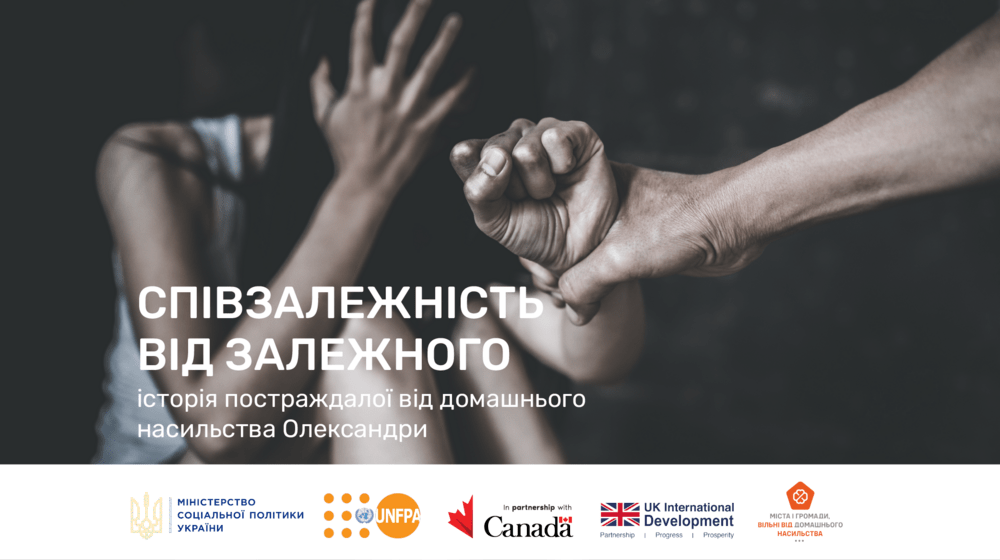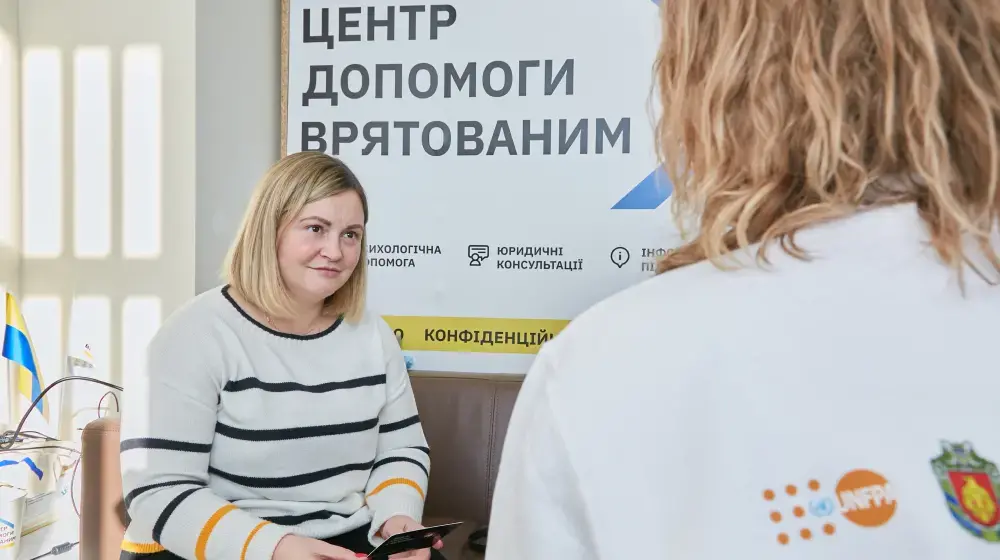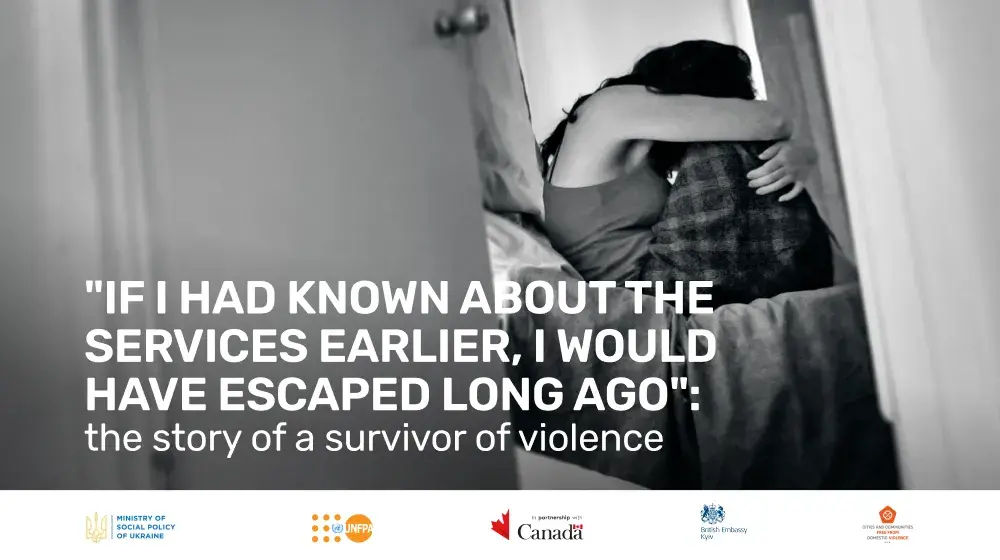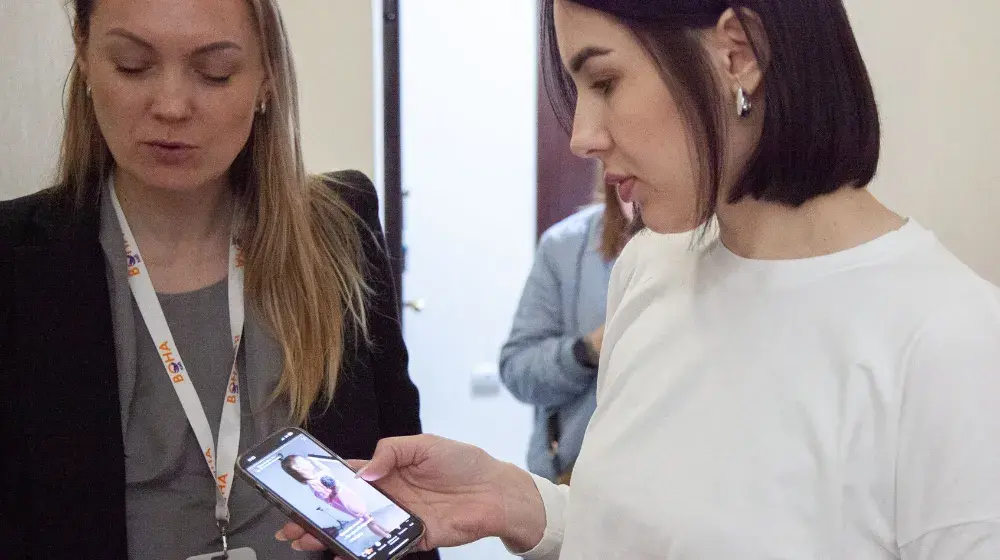Living with an addicted person often becomes a trap for those around them. To save their loved ones, family members unwittingly find themselves in a cycle of codependency that is difficult to break without help. Oleksandra, a 38-year-old woman from Kropyvnytskyi, was in a similar situation. For six years, she had been in a relationship with Yevhen, who abused alcohol and drugs, and when drunk, resorted to psychological and physical abuse of her.
Eventually, the man's anger also began to target the woman's older daughter. Oleksandra tried several times on her own to end the relationship with Yevhen. However, over time, she would return and get hurt again, until she finally sought help from professionals. At the beginning of the relationship, as Oleksandra says, she could not have imagined that things would turn out this way.
From romantic to drug addict
Their story with Yevhen began with a chance meeting at a bus stop and an interesting coincidence. The man started a conversation with Oleksandra with a greeting — on her professional holiday, Builder's Day. At that time, Yevhen's behavior did not seem concerning: he gave her love flowers every day and took care of her and her daughter. A year and a half later, he suggested they move in together and build a house on his land so they wouldn't have to spend money on renting an apartment.
'When you’re not living together, a lot of things remain unseen. He would come home from work, have a beer, and sometimes his hands were burned, but he said it was because he worked as a welder. I didn't understand the real reasons for this back then,’ Oleksandra says.
After moving in together, the man's behavior changed. He became harsher towards Oleksandra and her child; as she puts it, 'it seemed as if she was always in his way.' All the expenses for setting up the home and daily living fell on Oleksandra, since Yevhen, having quit his job to 'rest,' never found full-time employment. During periods of 'odd jobs,' he spent all the money on his own needs — drugs and alcohol. When he was drunk, he would harass his family, provoking conflicts.
'When he had no money, I had to hide mine. Because God forbid, if I left anything lying around, he would even take money from my wallet. He constantly promised to change, saying it wouldn't happen again, but after a certain period, he would go back to the same behaviors from which I had tried to pull him out,' the survivor says.
A second chance out of pity
Over time, the aggression became more intense. When Oleksandra became pregnant, she made her first attempt to end the relationship and moved out with her daughter to a rented flat. However, according to her, Yevhen was not bothered by this. It was his mother who persuaded Oleksandra to give him a second chance after the birth of their daughter.
'I felt sorry for her as a mother, even though she was on his side. She wanted the best for her child, so she asked me to come back because she saw that I was the only one who could somehow keep him in check,' the survivor says.
According to Oleksandra, they tried all methods to help Yevhen - coding and rehabilitation programs. But each time, the man returned to the path of addiction. Her life turned into a constant roller coaster — from his breakdowns, her police calls, and periods spent in rented apartments, to his renewed promises to change and her return out of pity. Oleksandra faced all of this alone because she did not want to make the problem public.
The woman's last stand was when Yevhen tried to beat her teenage daughter. According to Oleksandra, it happened in the middle of the night when her partner came home drunk again and started dragging her and the child out of bed.
'We were already asleep. He started waking me, then the older child. She was crying, begging him to stop. I started to pack my things, and he started to fight - first with my daughter, then with me,' Oleksandra says.
Help is on the way
After the police arrived, the man locked himself in the house. The woman and her children had nowhere to go in the middle of the night, so the police offered to take them to a crisis room for people suffering from domestic violence.
The police also took the woman to a hospital, where she received medical help after the beating, and her injuries were documented. Yevhen severely damaged Oleksandra's healthy eye. Despite the late hour, specialists waited for Oleksandra and her children in the crisis room and provided them with essential supplies. In the morning, psychologists began working with the survivors.
'The police also issued an urgent restraining order to keep him away from me and my children. Once I accidentally met him in the street, and luckily I managed to jump into a trolleybus, through the window of which either a stone or a mobile phone crashed. Nevertheless, I still receive occasional texts from him apologizing,' says Oleksandra.
After 20 days in the crisis room, the family was transferred to a shelter, where they have been living for five months. In addition to housing, social and psychological support, Oleksandra received legal assistance to bring her abuser to justice. However, according to the woman, a fine of UAH 860 for domestic violence is not enough. The case of assault is still under investigation.
Oleksandra is currently looking for permanent housing and a stable job with a decent salary. She is attending courses to improve her skills. She says she is ready to move on and finally make a life for herself and her children. Her daughters, she says, have also gradually recovered from their experiences with the help of psychologists. Although the younger one still sometimes asks about her father.
'I realized that my children are the most important thing in my life and that I should never tolerate such an attitude. It was very valuable that I was not alone, that I had someone to talk to and ask for advice. Moral support is much better than financial aid,' Oleksandra says.
****
The work of the crisis room and the shelter in Kropyvnytskyi is made possible by the ‘Cities and Communities Free from Domestic Violence’ project. The project is being implemented in cooperation with the Ministry of Social Policy of Ukraine, with the support of the governments of Canada and the United Kingdom as part of the UNFPA program on preventing and counteracting gender-based violence.





